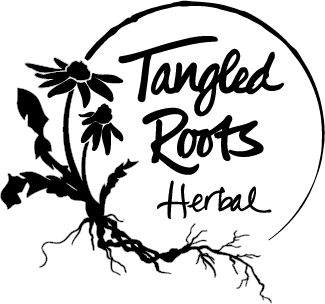Because we all have Tangled Roots!
The ancient art and science of herbalism, the study and use of medicinal plants, have sustained and healed us for centuries.
Despite our modern reliance on pharmaceuticals, there’s a renewed interest in this time-honored practice.
It’s recognized for its ability to promote physical health, deepen our intuitive understanding, and contribute to planetary healing.
The Roots of Herbalism
Herbalism can be traced back to the dawn of humanity.
Our ancestors relied on the bountiful flora around them not just for sustenance, but also for its potent healing properties.
Each civilization had its own herbal traditions, from the Ayurvedic practices in India, Traditional Chinese Medicine in the East, to the indigenous medicinal traditions across the globe.
Herbalists view the body as a holistic system, interconnected and inseparable from the environment around it.
There’s a deep relationship between humans and nature, and herbalism is the understanding of how the systems rely on each other to stay in balance.
Herbalism and Health
Herbal medicine's importance for our health is multifold.
Plants are packed with complex combinations of phytochemicals and constituents that have therapeutic benefits.
Herbs such as turmeric, ginger, and garlic are lauded for their anti-inflammatory properties, while lavender and chamomile are renowned for their calming effects.
Modern science has validated the effectiveness, as in the beginning many plants’ constituents were extracted, studied and tested and formed the basis of modern pharmaceuticals (uh, hello willow bark and salicin, the foundation on which aspirin was built!
But incredibly, herbalism encourages preventive healthcare.
The practice encourages maintaining a balance in the body to prevent disease rather than merely treating symptoms once they appear.
It also emphasizes the importance of lifestyle and dietary choices in concert with herbal remedies.
Herbalism and Intuitive Development
The practice of herbalism also nurtures our intuitive development.
The act of growing, harvesting, and preparing herbs creates a powerful bond between the practitioner and the natural world.
By paying attention to the plants and understanding their healing properties, we sharpen our intuitive capacities.
Moreover, many herbalists and gardeners feel an enhanced sense of connection and empathy, not just towards nature, but towards other people as well.
By understanding the patterns and wisdom inherent in nature, herbalists often find similar wisdom within themselves and in their relationships.
Herbalism and the Planet
Studying herbalism has long-term impacts on not just the human body, but our planet.
It encourages local and seasonal sourcing of herbs, which reduces carbon footprint and supports local biodiversity.
It also fosters a deep respect and stewardship for the environment, as “herbies” realize that their health and the planet's health are closely linked.
By working with plants responsibly, we can contribute to sustainable farming practices, biodiversity, and the health of our ecosystems. In essence, the principles of herbalism align with the broader objectives of conservation and sustainability.


